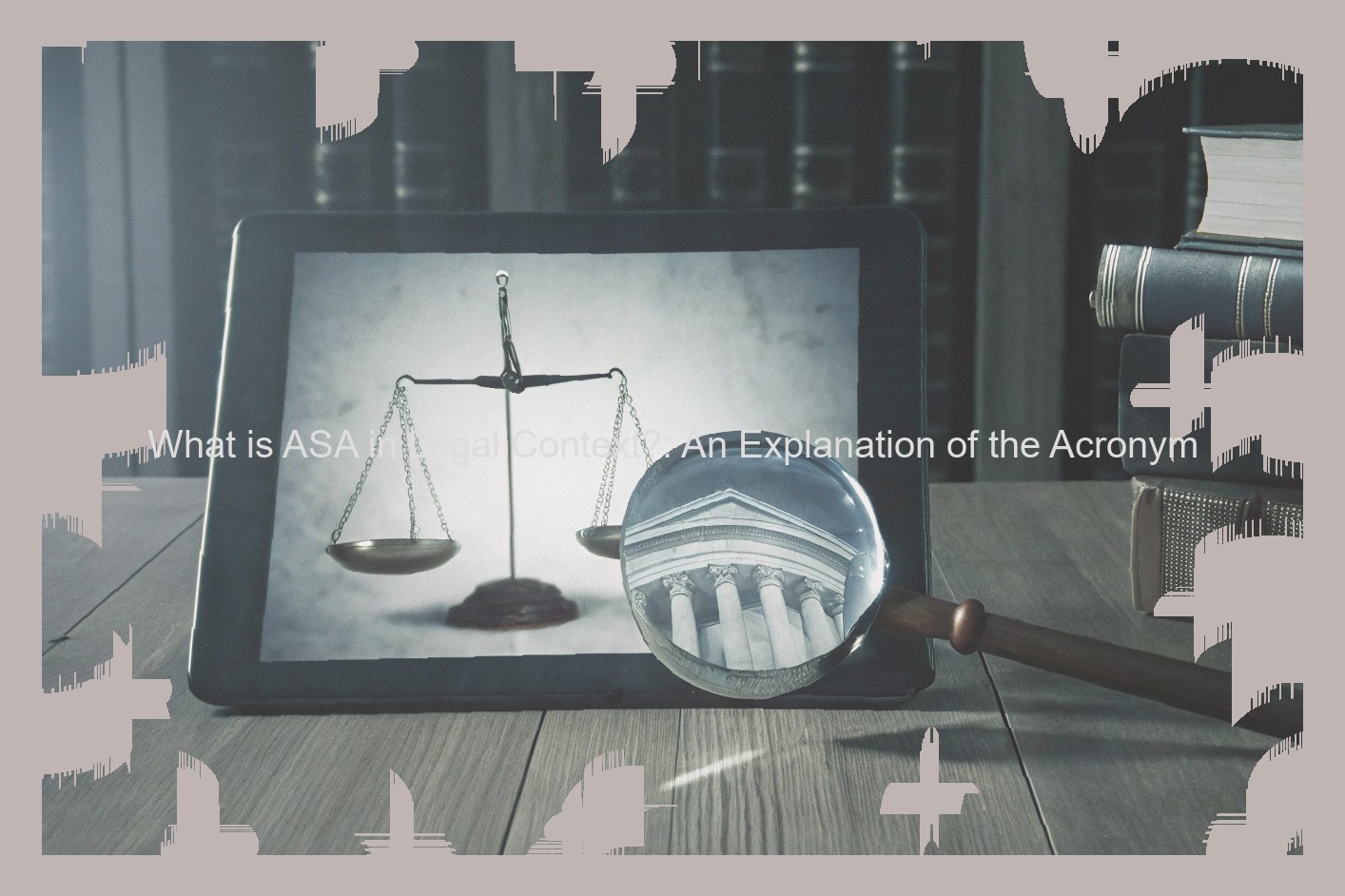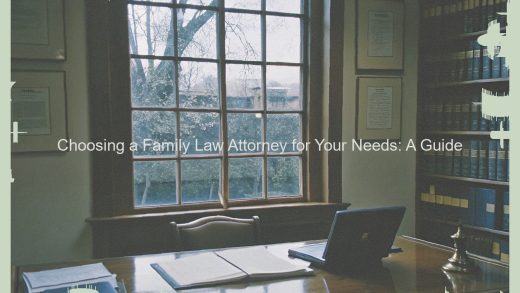A Lawyer’s Guide to ASA: An Introduction
As a general matter, ASA in the legal context refers to an abbreviation for a specific legal entity and corporate structure that is commonly used in Civil Law countries, namely the "Aktiengesellschaft" (public company limited by shares) or "sociétés anonymes" (French for anonymous companies) under the laws of Germany, Switzerland, Luxembourg, Belgium and some others. In practice, the term ASA in the legal context may refer to the abbreviated name of such companies under their national local language, such as Aktiengesellschaft or société anonyme . In summary, ASA in the legal context is the abbreviation that refers to a specific legal structure and is the generic way to talk about such corporations in certain countries where law is codified in the Civil Law tradition. The key point to remember is that this term is just an abbreviation for a legal structure and has no "special meaning" in the legal context, other than its generic function to refer to the legal structure to which it applies. Therefore, it is important to remember that this term may have specific meanings in other legal contexts or fields of law, such as the ownership structure of a corporation.

Legal Meaning of ASA: Assistant State Attorney
In the legal context, ASA can also refer to "Assistant State Attorney". The ASA (Assistant State Attorney) can be thought of as a government professional trained to prosecute persons accused of committing crimes in his or her state. While the term can be used to refer to any government prosecutor working at the state level, it is most often used to refer to prosecuting attorneys working in Florida.
In this state, a veteran trial attorney can become a state attorney and take advantage of the position to work for virtually his or her whole career and potentially move up the ranks to higher level positions. The Assistant State Attorney enjoys immunity from lawsuits in many instances.
In the Florida criminal justice system, the State Attorney’s office is an integral part of the prosecution. Although there are some defense lawyers who have expressed criticism over the workings of this department of the state system, in most cases, it is in the best interest of all parties that the case has an objective prosecutor (as opposed to a prosecutor that has been pressured into representing either side).
An ASA (Assistant State Attorney) has the option of taking a case to court (criminal trial) or working to negotiate a plea deal to avoid going to trial. In the case of a trial, the ASA must work to prove that the accused is guilty beyond a reasonable doubt.
Legal Interpretation of ASA: Advertising Standards Authority
The ASA has been the longest standing and largest self-regulatory system for advertising in the world. The ASA was founded in 1962 and refers to itself as "the UK’s independent regulator of advertising across all media" and says it "uphold[s] the Advertising Codes." These Codes are "the rules that all non-broadcast advertising, sales promotions and direct marketing must follow." The Codes are maintained by the Committee of Advertising Practice ("CAP").
Although the ASA is a voluntary self-regulatory organization, its decisions can have a major influence on cases involving marketing, promotion, and advertisement law. Since the ASA has been regulating advertising in the UK, it has made over 200,000 independent, impartial, and fast decisions. Of these 200,000 decisions, around 140,000 have resulted in a change to an advert. In 2015, the ASA, CAP, and UK Code of Non-broadcast Advertising, Sales Promotion and Direct Marketing were merged to create a single industry body for the regulation of all marketing communications, called the Advertising Standards Authority. The Advertising Standards Authority continues to regulate non-broadcast advertising, while broadcast advertising is regulated by Ofcom.
By applying and enforcing the Advertising Codes, the ASA protects consumers from misleading adverts, substantiates evidence behind claims made by advertisers, and prevents ads from causing offence. The ASA has the power to stop companies from running adverts if they are found to breach the Advertising Codes. Investigating complaints made about ads is free, and the ASA will take action to ensure the ad is not re-run.
Where an advert appears on the ASA website as having been banned or not to be run again, it will generally remain on the website indefinitely. CAS may also refer matters to Trading Standards, the Competition and Markets Authority ("CMA"), media owners and other regulatory bodies, including the Department for Business, Energy and Industrial Strategy ("DBEIS"), for breaches of competition and consumer law. Where necessary, for example in relation to criminal offences, the ASA may also refer matters to the police.
The ASA has three grounds on which they investigate paid-for ads: Misleading claims, harm and offence, and children and other vulnerable people.
What ASA Means in a Legal Context
Beyond the well-known interpretations of ASA as American Society of Appraisers or American Society of Adjusters, the abbreviation "ASA" can have other meanings under the law. Particularly in foreign jurisdictions, an abbreviation that is similar to ASA may be used in various legal contexts.
For example, in Mexico, "ASA" is a well-known abbreviation for "Asesor de Seguros y Fianzas," which translates into English as "Insurance and Guaranty Advisor." This refers to what many might call an insurance agent, as opposed to an auto insurance adjuster, who more frequently works on the insurer’s behalf to assess the damages to a vehicle. As the Mexican Insurance and Bonding Commission (Comisión Nacional de Seguros y Fianzas) website states, "ASA" are "individuals and/or legal entities that are dedicated to the activity of mediation, promotion or counseling of insurance, bonding, reinsurance and/or capitalization contracts…" In essence , they are those individuals with the power of attorney to bind a company through an insurance contract, rather than independent contractors like adjusters. The abbreviation "ASA" is so widely used in Mexico that a type of certification is actually referred to as "Certificación ASA," which is shorthand for "Certificación de la Asociación Mexicana de Agentes de Seguros y Financieras," or Certification of the Mexican Association of Insurance and Financial Agents. "ASA" is also an acronym for the association, "Advogados Sem Fronteiras," which translates to "Attorneys Without Borders," a non-profit association based in Portugal aimed at providing legal representation to those in need, so long as the attorneys so volunteer their services. The mission of the association is very similar to its American counterpart, "Attorneys Without Borders," which provides humanitarian legal assistance to vulnerable populations in Africa and Asia via a network of international lawyers.
The Definition of ASA in Law: An Exploration
Understanding ASA in the legal context is not only vital for a comprehensive grasp of the terminology used in legal texts, but also significantly enhances the development of your legal career. For aspiring lawyers, knowledge of terms like ASA can be a critical differentiator when it comes to securing a position in a highly competitive job market. By being familiar with the various meanings of ASA, candidates can showcase their strategic thinking and understanding of nuanced legal matters, making them more attractive to potential employers.
ASA roles are not limited to the realm of legal practitioners; they are also important for individuals working in related fields such as paralegal work, legal consulting, and policy development. By understanding and utilizing the terminology associated with ASA in professional settings, you demonstrate your commitment to the role and your understanding of industry language which in turn enhances professional relationships and increases professional confidence.
Overall, being knowledgeable in ASA terminology enables you to better navigate the legal landscape and opens doors to a wider array of professional opportunities. It empowers you to communicate effectively with colleagues, clients, and stakeholders, all of which is essential in the highly interconnected world of legal practice.
The Legal Significance of ASA in a Legal Profession
Whether as part of enforcement proceedings, risk assessments, or forecasts of market dynamics, the acronym "ASA" is a commonplace part of legal parlance that has relevance in several key areas of law. The most common meaning of ASA refers to an ‘Adverse Sensitivity Analysis’, a statistical modelling process that accounts for the risk of harm to patients caused by a drug whose efficacy is subtly dependent on the genotype of the patient. Such ASA processes are as yet relatively infrequent in legal contexts, but their use and acceptance as evidentiary tools are likely to grow over time. Of greater prevalence in more immediate, applied legal contexts are references to ASA as ‘Alternative Scientific Advice’ provided by regulatory authorities to pharmaceutical manufacturers; relevant advisories may be market specific, EU-wide, or global in scope . Finally, ASA permits the use of technology to drive statistical modelling or simulations of safety or efficacy for a drug or biological product; the use of evidence generated by such technologies may be integrated into submissions made to regulatory authorities, or leveraged in patent claims to improve the range and scope of protection. Such models can also be deployed in transparency and accountability reports filed with the U.S. Securities & Exchange Commission. There is a heavy emphasis in the United States and beyond towards predictive modelling for pharma/bio products to best serve the needs of the patient – or, in the alternative, to characterize potential liabilities or inform risk assessments. The overall themes that underscore references to ASA in legal contexts is that, although aimed at modern healthcare needs, they are also closely linked to longer-standing issues such as regulatory compliance, risk management, and liability.


